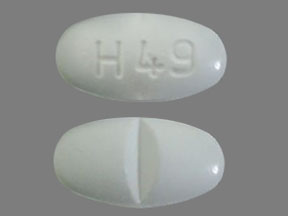
Bactrim Ds Coupons & Savings Card – Discount Prices from $3.71
Brand for: Sulfamethoxazole-trimethoprim
My prescription
Edit
800-160MG, Sulfamethoxazole-trimethoprim (20 Tablets)
Select pharmacy

CVS
$19.12
COUPON PRICE
Walmart
$3.71
COUPON PRICE
Walgreens
$9.94
COUPON PRICE
Albertsons
$12.40
COUPON PRICEBactrim Ds savings card
Show this card to your pharmacist
Walmart
$3.71
BIN
ID
PCN
GRP
019876
LH31B78052
CHIPPO
LHX
Powered by
More prescriptions for urinary tract infection
More prescriptions for urinary tract infection
Bactrim Ds (Sulfamethoxazole-trimethoprim) dosage forms
Dosage Quantity Price from Per unit 800-160MG 20 Tablets $3.71 $0.18 800-160MG 1 Tablet $2.56 $2.56 800-160MG 2 Tablets $2.62 $1.31 800-160MG 3 Tablets $2.68 $0.89 800-160MG 4 Tablets $2.74 $0.69 800-160MG 6 Tablets $2.86 $0.48 800-160MG 10 Tablets $3.11 $0.31 800-160MG 12 Tablets $3.23 $0.27 800-160MG 14 Tablets $3.35 $0.24 800-160MG 15 Tablets $3.41 $0.23
| Dosage | Quantity | Price from | Per unit |
|---|---|---|---|
| 800-160MG | 20 Tablets | $3.71 | $0.18 |
| 800-160MG | 1 Tablet | $2.56 | $2.56 |
| 800-160MG | 2 Tablets | $2.62 | $1.31 |
| 800-160MG | 3 Tablets | $2.68 | $0.89 |
| 800-160MG | 4 Tablets | $2.74 | $0.69 |
| 800-160MG | 6 Tablets | $2.86 | $0.48 |
| 800-160MG | 10 Tablets | $3.11 | $0.31 |
| 800-160MG | 12 Tablets | $3.23 | $0.27 |
| 800-160MG | 14 Tablets | $3.35 | $0.24 |
| 800-160MG | 15 Tablets | $3.41 | $0.23 |
| 800-160MG | 21 Tablets | $3.77 | $0.18 |
| 800-160MG | 28 Tablets | $4.20 | $0.15 |
| 800-160MG | 30 Tablets | $4.32 | $0.14 |
| 800-160MG | 33 Tablets | $4.50 | $0.14 |
| 800-160MG | 40 Tablets | $4.93 | $0.12 |
| 800-160MG | 56 Tablets | $5.90 | $0.10 |
| 800-160MG | 60 Tablets | $6.14 | $0.10 |
| 800-160MG | 80 Tablets | $7.35 | $0.09 |
| 800-160MG | 90 Tablets | $7.96 | $0.09 |
| 800-160MG | 100 Tablets | $8.57 | $0.09 |
| 800-160MG | 180 Tablets | $19.92 | $0.11 |
| 800-160MG | 300 Tablets | $29.14 | $0.10 |
| 800-160MG | 500 Tablets | $38.57 | $0.08 |
What is Bactrim DS used for?
Bactrim DS is commonly used to treat various types of bacterial infections, including urinary tract infections, respiratory infections, gastrointestinal infections, and certain types of pneumonia. It is also used to treat and prevent Pneumocystis jirovecii pneumonia in individuals with weakened immune systems.
Is Bactrim DS 800-160 a strong antibiotic?
Bactrim DS 800-160 is considered a broad-spectrum antibiotic, which means it is effective against a wide range of bacteria. It is commonly used to treat various infections, including urinary tract infections, respiratory infections, and certain types of gastrointestinal infections. However, the term "strong" can be subjective and depends on the specific type of infection and the bacteria involved. It is important for a healthcare provider to determine the appropriateness of this antibiotic for a particular infection.
What should I avoid while taking Bactrim?
While taking Bactrim, it is advisable to avoid excessive sun exposure, as the medication can increase sensitivity to sunlight, potentially leading to sunburn. Patients should also avoid alcohol, as it may exacerbate certain side effects. Additionally, it is important to avoid taking Bactrim with certain medications or supplements without consulting a healthcare provider, as there may be potential interactions. Always follow the healthcare provider's instructions regarding diet and other medications while on Bactrim.
What infections does Bactrim DS treat?
Bactrim DS is commonly used to treat a variety of bacterial infections, including urinary tract infections, certain types of pneumonia, bronchitis, ear infections, and traveler's diarrhea. It is also used to treat certain types of skin infections and is effective against some strains of bacteria that are resistant to other antibiotics.
Can you eat dairy products while taking Bactrim?
Yes, dairy products can be consumed while taking Bactrim. There are no known interactions between Bactrim and dairy products. However, it is always advisable to follow the healthcare provider's instructions and discuss any dietary concerns with them.
